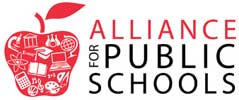Four findings were identified:
Too many young people are facing too many hurdles with too little help.
Young people who left school without graduating experienced twice as many adverse life experiences as youth who graduated on time. More than half of those who left school without graduating experienced five or more adverse life experiences between the ages of 14 and 18. Too many young people who leave school without graduating are experiencing a kind of relationship poverty. They don’t have enough people in their lives who can provide the type of support they need.
Relationships increase likely graduation and enable young people to redirect internal strengths.
Overall support from adults in school reduces the likelihood of young people leaving school by 25 percent. Instrumental support from adults outside of school reduces the likelihood of young people leaving school by 17 percent. With supportive relationships in their lives, young people are able to draw on their own strengths and focus on academic success.
Support buffers adversity – up to a point.
Even a moderate amount of support boosts likely graduation by at least 20 percentage points for young people experiencing moderate risk. Young people reporting five or more adverse life experiences hit an adversity cliff, and social support alone does little to help. Uninterrupted graduation stays well below 50 percent, even with high support from multiple sources. Relationships still matter, but they must include efforts to resolve trauma, health problems, and social and economic barriers.
Caring adults don’t need to be heroes – young people need an anchor and a web of support.
Young people growing up in challenging circumstances need multiples sources of support at varying intensities. An anchor provides stability and trust. Once that person is in place, the anchor can illuminate a web of supportive relationships that can provide information and resources. Some young people may be standing in a room that contains all the support they need, but they need someone else to turn on the lights so they can see what’s there and reach for it.
“Don’t Quit On Me” outlines steps individuals and community members can take to increase student success. These include mentoring, tutoring, providing targeted interventions to prevent drop outs and to increase “drop ins”, and revising school discipline policies. In addition, engaging health care professionals and social support networks is a suggested path to raising graduation rates.
Student Alliance for Public Schools programs are now active in 12 high schools (8 in Hillsborough County and 4 in Pinellas). This spring, they will once again lead a GradNation Community Summit and will inspire the Tampa Bay community to work together to raise graduation rates. Together, individuals, schools, and communities can build a web of support to help young people succeed. Click here to view highlights of that special event. 
Sign up and be among the first to be invited to the GradNation Community Summit.









